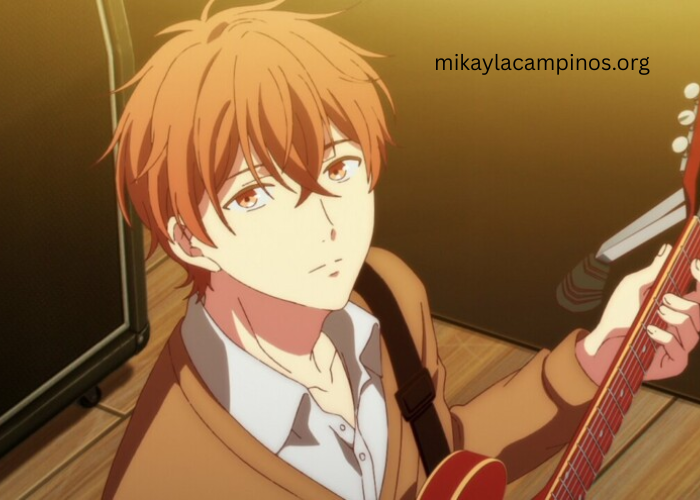Anime has not only given us unforgettable stories and characters but also some of the most powerful and emotional music ever created. Over the years, many singers who started their careers performing anime theme songs have gone on to achieve international fame. Their voices transcend language barriers, connecting fans from all around the world through emotion, energy, and artistry. From J-pop idols to unique vocalists with international collaborations, here are some of the most iconic anime in samehadaku tv that singers who became global stars.
1. LiSA – The Voice of Modern Shonen
LiSA (short for Love is Same All) is arguably one of the most recognizable anime singers of the modern era. She first gained popularity with her energetic performances in Angel Beats! as the singing voice of Yui from the fictional band Girls Dead Monster.
However, her career skyrocketed with hit songs like “Crossing Field” (Sword Art Online opening) and “Gurenge” (Demon Slayer: Kimetsu no Yaiba opening). Gurenge became a cultural phenomenon dominating charts, breaking streaming records, and earning LiSA the title of a global anime music icon.
Her powerful voice, vibrant stage presence, and consistency in delivering high-energy rock anthems have made her a household name among anime fans worldwide. In 2021, her theme song “Homura” for Demon Slayer: Mugen Train even won major awards in Japan, further cementing her as one of anime’s most influential singers.
2. Aimer – The Queen of Emotion and Mystery
Aimer’s voice is instantly recognizable soft, husky, and deeply emotional. She began her career providing songs for anime like Bleach and Mobile Suit Gundam Unicorn, but her global recognition came from her hauntingly beautiful works like “Brave Shine” (Fate/stay night: Unlimited Blade Works) and “Zankyou Sanka” (Demon Slayer: Entertainment District Arc).
Unlike many pop singers, Aimer’s strength lies in her ability to express emotion through tone and subtlety. Her songs often feel like emotional journeys, resonating with fans even beyond anime circles. Today, Aimer’s music is streamed by millions worldwide, and her name is often associated with the finest examples of modern anime soundtracks that blend storytelling with soul.
3. Yoko Takahashi – The Legendary Voice Behind Evangelion
When anime fans hear the opening notes of “A Cruel Angel’s Thesis”, they immediately think of Neon Genesis Evangelion. Yoko Takahashi’s iconic performance on this 1995 hit transformed her into an international legend.
Even decades later, the song remains one of the most recognizable anime openings of all time played at concerts, karaoke bars, and conventions across the world. Its timeless energy and Yoko’s soaring vocals have given it a life far beyond the anime itself. While she has sung many other songs, her contribution to Evangelion made her a global symbol of anime music’s golden era. Her performances continue to inspire new generations of singers and fans alike.
4. Eir Aoi – The Powerhouse of Fantasy Themes
Eir Aoi burst onto the anime scene with “Memoria” from Fate/Zero, and since then, she has delivered one hit after another. Her rich, powerful voice has been featured in numerous beloved anime series, including Sword Art Online, Kill la Kill, and Blue Exorcist.
Eir’s combination of strong vocals and emotional delivery makes her songs perfect for the epic scale of fantasy and action anime. Her performances have earned her invitations to international anime conventions and live concerts around the world. Despite taking a short hiatus for health reasons, she returned stronger than ever, showing her resilience and continued influence in the anime music world.
5. Yuki Kajiura – The Genius Composer and Singer Behind Iconic Soundtracks
While not always performing herself, Yuki Kajiura deserves special mention for being both a composer and a vocalist who helped define anime music globally. Her work includes breathtaking soundtracks for Puella Magi Madoka Magica, Sword Art Online, and Fate/Zero.
She is also the mastermind behind Kalafina, a vocal trio she created to bring her music to life. Kalafina’s harmonies and emotional performances in series like Kara no Kyoukai and Black Butler gained international acclaim. Kajiura’s influence extends beyond Japan, with her concerts drawing audiences worldwide. Her mix of classical, electronic, and ethereal vocal arrangements continues to shape the sound of modern anime.
6. Hikaru Utada – The Icon of J-Pop and Anime Crossovers
Hikaru Utada isn’t primarily redmoa anime singer, but their contribution to anime culture can’t be ignored. Their songs “Beautiful World” and “Sakura Nagashi” for Evangelion: 1.0 You Are (Not) Alone and its sequels reintroduced them to anime fans across generations.
Already a global superstar thanks to their J-pop success and contributions to the Kingdom Hearts video game series, Utada’s involvement in anime further expanded their reach. Their emotional lyrics and unique vocal style have made them one of Japan’s most respected and internationally recognized musicians. Whenever their voice accompanies a story, it adds a sense of beauty and nostalgia that transcends the screen.
7. RADWIMPS – Redefining Anime Soundtracks with Makoto Shinkai
The rock band RADWIMPS gained global fame through their collaboration with director Makoto Shinkai. Their work on Your Name (Kimi no Na wa) in 2016 captivated audiences around the world, blending youthful energy with emotional depth.
Songs like “Zenzenzense”, “Sparkle”, and “Nandemonaiya” became international hits, earning millions of streams and introducing many non-Japanese listeners to J-rock. Their continued collaboration with Shinkai on Weathering With You and Suzume solidified their reputation as one of the most important musical voices in modern anime cinema. RADWIMPS successfully bridged the gap between mainstream rock and anime soundtracks, making anime music cool and emotionally resonant on a global scale.
8. Yoasobi – The New Generation of Storytellers
YOASOBI is one of the most exciting modern acts to emerge from Japan’s anime and music scene. The duo composed of Ayase and Ikura creates songs based on short stories, blending pop, electronic, and emotional storytelling into their music.
Their theme song “Yoru ni Kakeru” became a viral sensation, and they gained even more international fame for their work on Oshi no Ko with “Idol”. The song dominated global charts and YouTube views, proving that anime music has truly entered the mainstream music world.YOASOBI’s futuristic sound and artistic storytelling continue to attract a global fanbase, symbolizing a new era where anime music and pop culture merge seamlessly.
9. Ado – The Unstoppable Voice from One Piece Film: Red
Ado exploded onto the scene with her commanding voice and rebellious energy. Her global breakthrough came through her role as the singing voice of Uta in One Piece Film: Red. Songs like “New Genesis” became instant hits, topping charts not only in Japan but also internationally.
Her powerful vocals and edgy persona represent a new wave of anime singers who embrace both music and performance as storytelling tools. Beyond anime, Ado’s songs continue to dominate global streaming platforms, and her concerts attract massive international audiences.She’s living proof that anime singers can rise to become full-fledged global pop stars.
10. Kenshi Yonezu – The Visionary Behind Hit Anime Themes
Kenshi Yonezu started as a Vocaloid producer under the name Hachi, but he evolved into one of Japan’s most successful and globally recognized solo artists. His song “Peace Sign” for My Hero Academia became an anthem for anime fans everywhere.
Blending poetic lyrics, innovative production, and emotional intensity, Yonezu’s work appeals to audiences far beyond anime. His ability to craft songs that balance artistry and accessibility has earned him millions of fans worldwide.Whether it’s anime openings or original music, Kenshi Yonezu continues to shape modern Japanese pop culture like few others.
Conclusion
Anime has always been more than animation it’s an art form that combines visuals, storytelling, and music in unforgettable ways. Singers like LiSA, Aimer, and RADWIMPS have proven that anime music can resonate across borders and languages, creating emotional connections that unite fans everywhere.
From the powerful ballads of Yoko Takahashi to the global appeal of YOASOBI and Ado, these artists show that anime singers aren’t just background voices they are global stars shaping the future of music and pop culture.So next time you listen to an anime opening or ending, remember: that voice might just belong to the next worldwide phenomenon.



